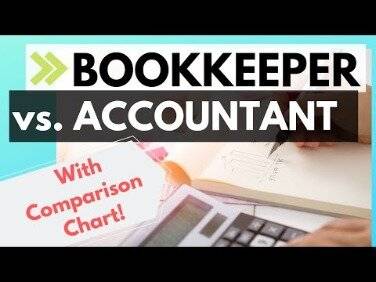You can also help establish best practices for basic bookkeeping and other transactional activities for the flow of money in and out of a legal practice. In some instances you may be performing the bookkeeping and in others, the firm will have someone in-house, doing some or all of this work. Regardless, you get to lay down the rules as to how the bookkeeping gets done. This puts you in a position to get the right data into the accounting engine.
- Having this issue can have serious consequences and impede the growth of your business.
- Law firms can get in trouble when they withdraw unearned funds from CTAs.
- It provides end-to-end help in transferring all funds securely without letting them get accessed from any outside source.
- Unless the IRS requires you to use the accrual method—for law firms, this rule only kicks in once you start making $10m a year—which method is best will depend on your accounting needs.
- That’s challenging in any industry, but it can be especially difficult for a small law firm.
Law firm accounting is fairly subjective compared to law firm bookkeeping. A critical part of the legal accounting process focuses on analyzing financial reports and KPIs to uncover critical insights and make informed business decisions. This allows you to determine which cases are the most profitable, which ones drain the most resources, and where money is being spent but not made.
Common Bookkeeping Mistakes and How to Avoid Them
Larger law firms that need an all-in-one accounting system with more advanced features should consider tools like PCLaw and LeanLaw. Zola Suite might be the best choice for you if you need a platform that includes CRM capabilities. In this section, we’ll take a quick look at how the top 10 legal accounting software solutions compare against each other in terms of pricing.
- Small and medium law firms have a lot to benefit from this software, as well as solo accountants working for multiple clients.
- Use our receipt tracker + receipt scanner app (iPhone, iPad and Android) to snap a picture while on the go.
- However, taking on tasks above and beyond your duties is never a good idea, especially accounting and financial management tasks.
- This leaves you with the purchase of additional non-legal accounting software.
The appropriateness of one method over the other highly depends on the characteristics of your firm. As you learn more about the process, you will likely find that you already understand law firm accounting and financial management. But no matter how much knowledge you hold, this guide will help you attain a high level of fluency in both practices.
Bookkeeping for Law Firms
Bookkeepers maintain and record all financial transactions in the original books of entry and balance the financial accounts for your firms. They summarize and organize all the company’s financial transactions chronologically in a systematic manner. In law firms, legal bookkeeping takes place first and relates to the administrative side of tracking cash. Legal accounting is the process of making business decisions by delivering powerful financial reports. Lawyers and law firms have started the online usage of accounting tools as it delivers more efficient and leads to more accelerating decision-making in less time. It provides end-to-end help in transferring all funds securely without letting them get accessed from any outside source.

By establishing—and following—best practices for accounting for law firms like the examples below, you’ll be better able to help your firm stay on track. Reliable bookkeeping for attorneys also provides accurate financial data for legal accountants to work with. Furthermore, maintaining sound financial practices enhances a law firm’s reputation among clients and regulatory authorities. When clients see that their funds are handled with care and transparency, it fosters trust in the firm’s integrity. IOLTA requires attorneys to place client funds in interest-bearing accounts, with the interest being used for charitable purposes. Failing to comply with these requirements can result in serious consequences for law firms.
Trust Accounting
Employment taxes are reported using a Form W-2 for each employee, and Form 940 and Form 941 if you withhold any taxes from an employee’s paycheck. The Federal Unemployment Tax Act (FUTA) tax provides payments of unemployment compensation to workers who have lost their jobs. The IRS doesn’t require you to keep records of certain expenses under $75, but we still recommend that to be safe, you keep digital copies of all records.
One of the most important ways of doing this is to develop an organized bookkeeping system as soon as possible. Hiring a Certified Public Accountant (CPA) is one of the best things you can do for your law practice. Which method you choose will affect unit price calculator cash flow, tax filing, and even how you do your bookkeeping. Make sure to consult with a CPA before settling on the method you’ll use. You can go with an accrual or cash accounting method in the US, and the difference is mostly about timing.
For law firms, how beneficial is legal accounting?
These templates can be used for transactions like invoices, quotations, orders, bills, and payment receipts. In this section, we bring to you an easy guide you could follow to ensure that you have all the ingredients on your table to cook up a great accounting year ahead. If you are a law firm owner and wondering if you could lay your hands on a basic Accounting Guide to help you with the basics, then this post is for you. If you change your mind at any time about wishing to receive the information from us, you can send us an email message using the Contact Us page. We’ll deploy the innovative tech powered solutions that accurately and efficiently handle the ins and outs of your global, national and local assurance, tax and operational needs.
How Digitslaw Can Help with Legal Accounting
Depending on your needs, opening a money market account for savings might be a smart move. It’s an interest-bearing account that offers a higher yield than traditional business savings accounts (interest rates for money market accounts sit at an average of 0.11% nationally). You’ll be required to maintain a higher minimum amount in the account, and have limited check-writing options. Whether you’re a small law firm or large, follow the steps in this guide, and get on the path to financial clarity and success.
Legal accounting is a system that summarizes and classifies different financial data into a single report. Classifying different data and then generating accurate reports is one of the prime features of accounting. Every law firm is trying to shift towards modern accounting solutions so that they can achieve the highest accuracy in their financial data. CaseFox legal billing software is one of the best legal billing solutions for law firms and lawyers. It aims at providing top-notch legal billing assistance around the globe. With the software comes the feature of legal accounting which makes this software a perfect one-in-hand solution for all law firms.




